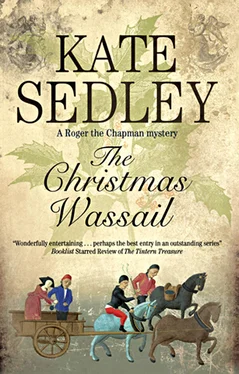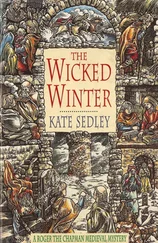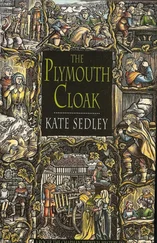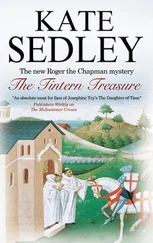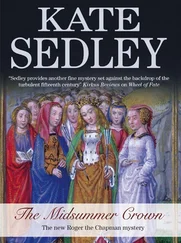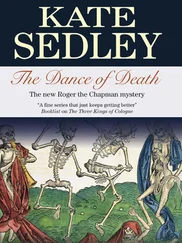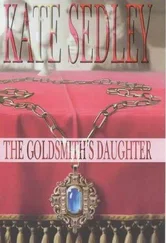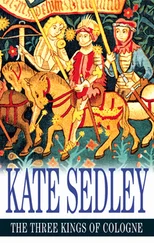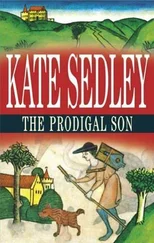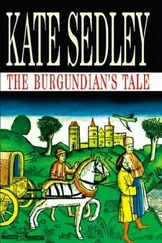Kate Sedley - The Christmas Wassail
Здесь есть возможность читать онлайн «Kate Sedley - The Christmas Wassail» весь текст электронной книги совершенно бесплатно (целиком полную версию без сокращений). В некоторых случаях можно слушать аудио, скачать через торрент в формате fb2 и присутствует краткое содержание. Жанр: Исторический детектив, на английском языке. Описание произведения, (предисловие) а так же отзывы посетителей доступны на портале библиотеки ЛибКат.
- Название:The Christmas Wassail
- Автор:
- Жанр:
- Год:неизвестен
- ISBN:нет данных
- Рейтинг книги:3 / 5. Голосов: 1
-
Избранное:Добавить в избранное
- Отзывы:
-
Ваша оценка:
- 60
- 1
- 2
- 3
- 4
- 5
The Christmas Wassail: краткое содержание, описание и аннотация
Предлагаем к чтению аннотацию, описание, краткое содержание или предисловие (зависит от того, что написал сам автор книги «The Christmas Wassail»). Если вы не нашли необходимую информацию о книге — напишите в комментариях, мы постараемся отыскать её.
The Christmas Wassail — читать онлайн бесплатно полную книгу (весь текст) целиком
Ниже представлен текст книги, разбитый по страницам. Система сохранения места последней прочитанной страницы, позволяет с удобством читать онлайн бесплатно книгу «The Christmas Wassail», без необходимости каждый раз заново искать на чём Вы остановились. Поставьте закладку, и сможете в любой момент перейти на страницу, на которой закончили чтение.
Интервал:
Закладка:
Two kings had lain within its walls. Stephen, fighting his cousin Matilda for the English throne, had been its prisoner for some little time after his capture at the Battle of Lincoln. And, later, the future Henry II, Matilda’s son and half-nephew of Robert of Gloucester, had spent much of his boyhood, from the ages of about nine to thirteen, there; carefree, happy years which he acknowledged in later life by the granting of Bristol’s first Great Charter, exempting its citizens from certain taxes and tolls. He had married the wealthy heiress and former Queen of France, Eleanor of Aquitaine, who had given him what she had been unable to give Louis VII: four healthy sons. But Henry quarrelled with them all, just as he quarrelled with Thomas Becket, his Archbishop of Canterbury. He was, nevertheless, one of England’s greatest kings, the Law Giver, and I liked to think that, as he lay dying at Chinon, surrounded by his enemies, he perhaps took comfort from memories of happy, childhood days in Bristol, fishing in the Rivers Frome and Avon and riding his pony through its cobbled streets or out into the surrounding countryside as far as Clifton and the gorge …
Adela nudged me painfully in the ribs. (She has a very sharp elbow when she likes.) ‘Wake up, Roger! You’re daydreaming again. What’s more, if I hadn’t managed to catch him in time, you would have dropped Luke. And I think the mummers must be coming. I can hear people cheering out in the streets.’
‘Sorry,’ I muttered, uncomfortably aware of my failings as a father and husband. I ruffled Luke’s curls by way of an apology and was rewarded with a beaming smile and the flash of a new tooth. I did not deserve it.
The shouting and cheering was growing louder as the mummers approached the castle, but I thought the tone of their reception was rather muted. And when, finally, they rattled across the barbican bridge and into the outer ward, I realized why.
This was no King’s Troupe which had been hired for our Christmas entertainment. Typically — and indeed what one should have expected knowing the city fathers’ obsession with saving money and doing everything on the cheap — it was a company of only five, two of them more than a little advanced in years. But they had made as brave a showing as they could with what they had, coloured ribbons and evergreens decking the first cart, which obviously also served as their stage. The second, smaller cart which rumbled behind was piled with chests of clothes, from which the occasional stray sleeve or leg of hose had escaped, and with rolls of painted canvas — the backdrops to their plays.
In spite of our general disappointment, we all raised a cheer as the carts came to a standstill in our midst. The young man driving the first one clambered from the box seat on to the ‘stage’ and raised his arms for silence. He was a tall, slim youth of about nineteen, with a ruddy face, ready smile and a generally pleasing appearance. I guessed that the young woman seated beside him, obviously pregnant, was his wife.
‘Friends!’ he shouted. ‘We are not a big company, as you can see.’ We all laughed and there were some disparaging remarks from the back of the crowd, but he took no notice and continued, ‘But what we lack in numbers we make up for in quality. We are, in short, the best.’ There were more cries of derision, but all good-natured and accompanied by laughter. ‘We shall give our first performance the day after tomorrow, on Saint Stephen’s Day, and it will be the enactment of Saint George and his epic struggle with the dragon. No character will be omitted. As well as the saint and his terrible opponent, you will also see depicted the Turkish Knight, the Saracen, Old Man Winter, the Doctor’ — there were roars of approval at this mention of the Doctor — ‘and Beelzebub Himself! Friends, you are all cordially invited to as many performances as you care to attend.’ He grinned broadly, adding, ‘There will, of course, be a collection for the players at each one.’
‘I thought the city fathers were paying you!’ yelled a voice, which I recognized as Jack Nym’s, from somewhere to my left.
The young man answered drily, ‘This is Bristol, master.’ There was a delighted roar from the crowd. He went on: ‘The mayor and aldermen are giving us free lodgings in the castle.’ He cast a disparaging glance around him and nodded in the direction of the roofless guardhouse. ‘The very best, as you can see’ — another roar — ‘but we have to keep body and soul together, so all donations will be gratefully received.’
He got down from the ‘stage’ and resumed his place beside the girl preparatory to driving forward into the inner ward, where one of the castle stewards was waiting patiently for him by the gate. Before the two carts disappeared from sight, however, I took quick stock of his companions. Apart from the young woman, there was another man of perhaps some thirty summers sharing the box seat with them, and whose features bore a sufficient resemblance to the girl’s to convince me that he was probably her brother.
The second cart was driven by a much older pair; a man and woman both well over sixty, and maybe nudging seventy if I were any judge of the matter. In spite of it being December, with a cold, nipping bite to the wind, the woman’s arms were bare to the elbow and, like her face, her skin was the colour of hazelnuts. Her clothes were nondescript and shapeless, while the hands which held the horse’s reins were remarkably large for her sex and appeared extremely strong. Around her head she had tied a broad strip of faded cloth from beneath which a few strands of grey hair were escaping, and between her teeth she clenched a long piece of straw which she chewed with slow, deliberate movements of her jaws. At first glance and until I noticed her skirts, I had mistaken her for a man.
Her companion on the box seat was undoubtedly male, bald but for a fringe of almost white hair which grew nearly to his shoulders. These were rounded and suggested a once tall man who was now permanently stooped with age. His skin was as brown as the woman’s, indicating, as did hers, the wandering, outdoor life. But his most distinctive feature, which I noticed as he turned his head in my direction, was the puckered skin around his right eye, drawing the corner upwards as though, at some time, it had been seared with a red-hot brand. At least, I thought that this was his most distinctive feature until he put up his right hand to flick a strand of hair from his cheek and I saw that the first two fingers were missing.
The leading cart had by now disappeared through the gate into the castle’s inner ward and the second was preparing to follow suit when a disturbance beyond the archway and voices raised in anger caused the woman to pull on the reins and bring the horse to a standstill. People, including Adela and myself, who had begun to disperse, came to a halt, craning over our shoulders to discover the cause of the commotion.
‘Oh, no!’ groaned a voice in my ear. ‘Not him again!’
But it was indeed Sir George Marvell riding out from the inner ward, together with another man, and loudly cursing the mummers’ carts which were impeding his progress.
‘Get out of my way, you idle layabouts!’ he shouted. Then, turning to his companion, he demanded in ringing tones, ‘What’s this riff-raff doing here, Robert?’
I knew Robert Trefusis by sight, although I knew very little about him. He was a tall, very upright, grey-haired man of roughly Sir George’s own age, and I understood him to be, again like Sir George, a man of inherited wealth. He was, I believed, an alderman who, on occasions, acted as one of the sheriff’s deputies, a role I suspected he had been playing that afternoon. It was my guess that Sir George had been to the castle to pay his son’s and grandson’s fines for breaking the King’s Peace that morning.
Читать дальшеИнтервал:
Закладка:
Похожие книги на «The Christmas Wassail»
Представляем Вашему вниманию похожие книги на «The Christmas Wassail» списком для выбора. Мы отобрали схожую по названию и смыслу литературу в надежде предоставить читателям больше вариантов отыскать новые, интересные, ещё непрочитанные произведения.
Обсуждение, отзывы о книге «The Christmas Wassail» и просто собственные мнения читателей. Оставьте ваши комментарии, напишите, что Вы думаете о произведении, его смысле или главных героях. Укажите что конкретно понравилось, а что нет, и почему Вы так считаете.
